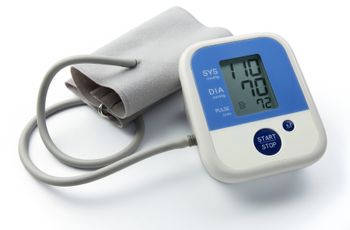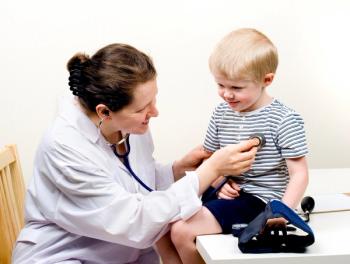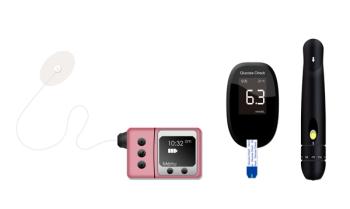
Technology
Latest News

Latest Videos

CME Content
More News

Intravenous (IV) robotic technology brings advantages for pharmacy staff, but there are also accuracy issues with the technology. In addition, this technology will not be replacing a pharmacy technician job, said Scott Soefje, PharmD, MBA, BCOP, FCCP, FHOPA, director of pharmacy cancer care and assistant professor of pharmacy, Mayo Clinic.

Interviews with chief financial officers of rural hospitals revealed that they perceived telehealth to have some financial advantages; however, they did not believe that telehealth improved their hospitals’ financial situations.

During an Institute for Value-Based Medicine® event held in New York City, Samyukta Mullangi, MD, MBA, fellow in medical oncology at Memorial Sloan Kettering Cancer Center, discussed how disruptions from the COVID-19 pandemic are ushering in health care delivery reform.

The risk of experiencing symptoms of postpartum depression may be higher in women who give birth after unintended pregnancies vs those who get pregnant intentionally, according to a recent study.

Melissa O'Connor, PhD, MBA, RN, FGSA, FAAN, endowed professor in community and home health nursing, M. Louise Fitzpatrick School of Nursing, Villanova University, and director, Gerontology Interest Group, addressed barriers related to access, cost, and knowledge impeding technology use in home health.

Abstracts show that institutions can make internal changes to drive the use of biosimilars and that successful biosimilar-to-biosimilar switching is based on patient-related factors.

Continuous glucose monitoring (CGM) systems have been shown to improve glycemia for individuals with type 1 diabetes (T1D), but they are not nationally funded in New Zealand.

A new study has found that a drop in serum inorganic phosphate (iP) was an early predictor of severe cytokine release syndrome (CRS), suggesting that monitoring serum iP levels could help promote safer management of the most common toxicity associated with chimeric antigen receptor (CAR) T-cell therapy.

Serum bicarbonate level also did not appear to affect the accuracy of real-time continuous glucose monitoring (rtCGM) in pediatric diabetic ketoacidosis (DKA).

A new report highlights the role at-home care played for geriatric patients during the COVID-19 pandemic.

Researchers investigated outcomes following implementation of remote care that targeted effective control of hypertension, or elevated blood pressure (BP), and cholesterol management.

Artificial intelligence (AI) could help drive accurate and effective risk adjustment in value-based care plans.

A prospective study found that patients and providers saw benefits while using a virtual assistant integrated into a teledermatology program.

There is a major role for telehealth in oncology care, not only for its convenience but also for giving clinicians the ability to scale nononcologic visits, explained Emeline Aviki, MD, MBA, FACOG, assistant attending gynecologic cancer surgeon at Memorial Sloan Kettering Cancer Center (MSKCC) in New York City and lead of the MSKCC Affordability Working Group.

Although automated insulin delivery systems have gained traction in type 1 diabetes, further research is needed to determine the feasibility of using such systems for patients with type 2 diabetes.

While immunocryosurgery is known to be effective against primary nonsuperficial basal cell carcinoma (BCC), there is less data on its effectiveness in relapsed BCC.

The child living with spinal muscular atrophy (SMA) type 2 had less fatigue and improved functional scores as time went on.

These second-generation basal insulin analogs, Gla-300 and IDeg-100, also had similar safety profiles, investigators found.

This new study shows how using electronic health record (EHR) data can objectively quantify patient treatment burden among individuals who have multiple myeloma (MM) compared with patient-reported outcomes, which can be subject to recall bias.

Melissa O'Connor, PhD, MBA, RN, FGSA, FAAN, endowed professor in community and home health nursing, M. Louise Fitzpatrick School of Nursing, Villanova University, and director, Gerontology Interest Group, spoke on the early use of technology in assessing older adults in the home setting and what research is required to improve best practices for their use.

Although the understanding of chronic graft-versus-host disease (GVHD) has improved in recent years, more work is needed to facilitate personalized treatments for patients after hematopoietic stem cell transplantation (HSCT).

Prediction models combining claims data with social determinants of health and additional, more-timely data sources using artificial intelligence (AI) can better identify individuals with the highest future medical spending.

Douglas L. Mann, MD, professor of medicine at Washington University School of Medicine in St. Louis and editor-in-chief of JACC: Basic to Translational Science discussed the first set of data reported on NTLA-2001, a novel investigative intravenous agent that targets the TTR gene and TTR protein levels, which have been shown to play a role in development of cardiac transthyretin (ATTR) amyloidosis.

Brent W. Miller, MD, board certified nephrologist and professor of clinical medicine at Indiana University School of Medicine, discussed new and emerging technologies for at-home hemodialysis and peritoneal dialysis, as well as efforts that have been made to address uptake issues for patients with kidney disease.

Only 18% of US adults with cardiovascular disease (CVD) and 26% of adults at risk for CVD use wearable health devices.














